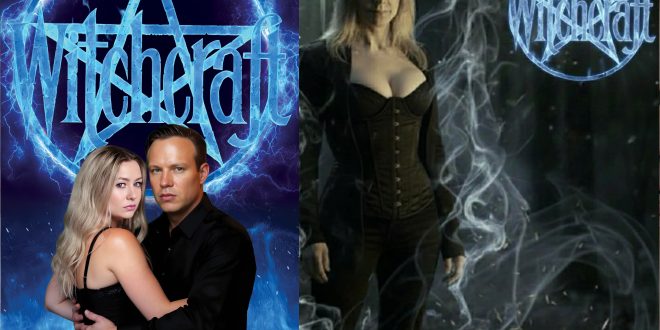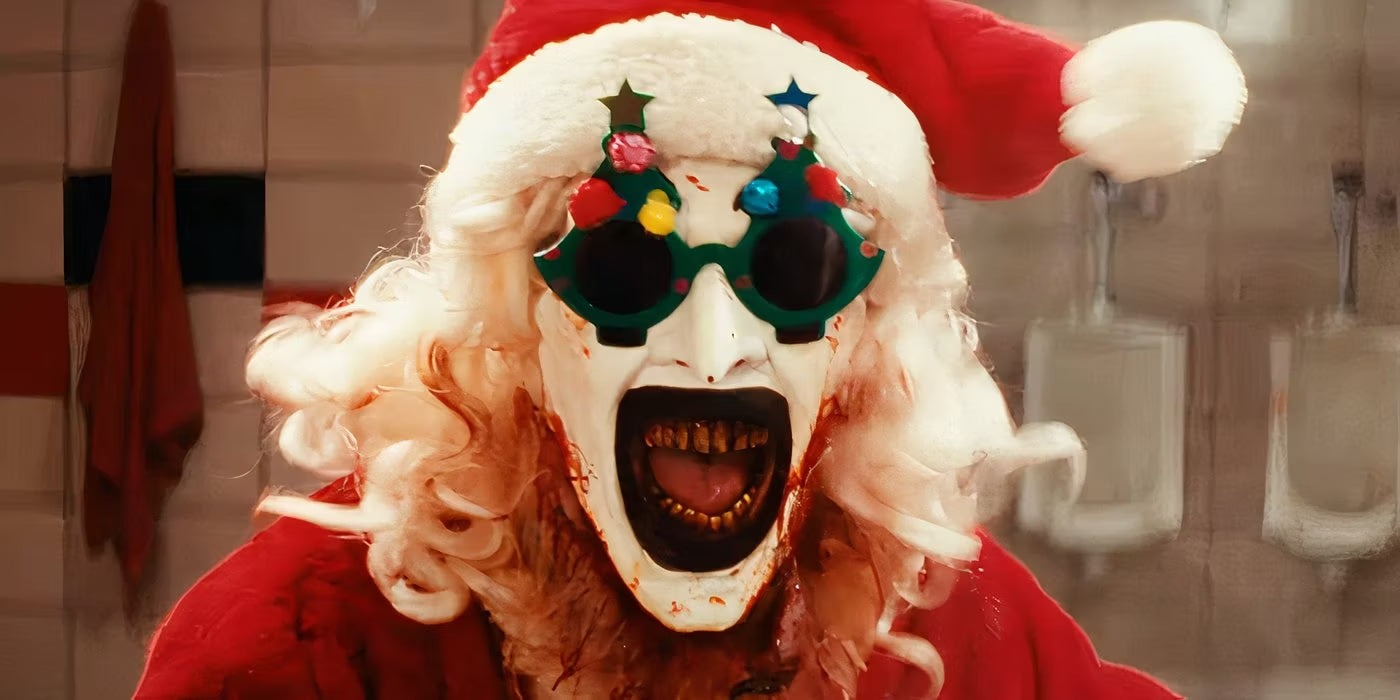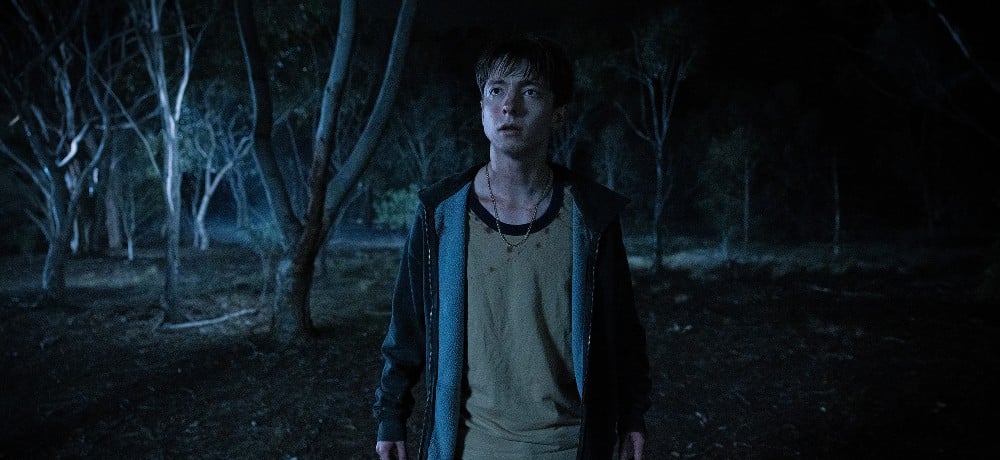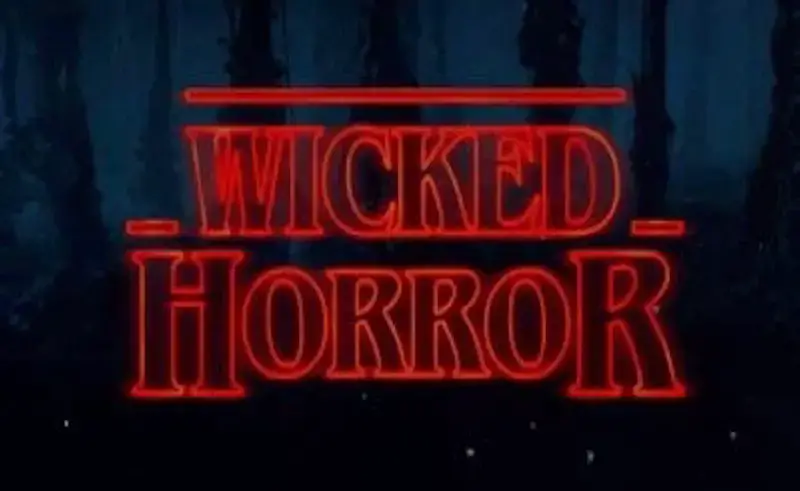‘Vulcanizadora’ Director On Creating His Own ‘Faces of Death’
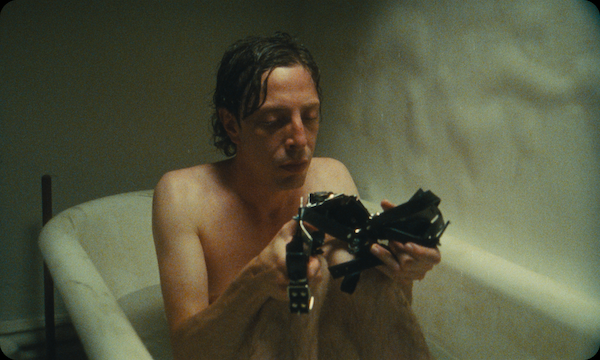
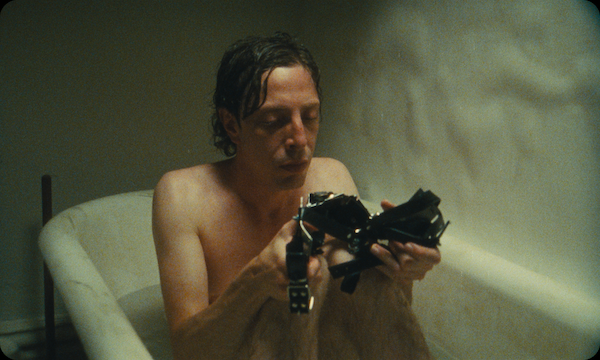
Writer and director Joel Potrykus has been making punk rock horror films since before the premiere of his feature film debut in Ape in 2012. His works push boundaries and capture a specific loner attitude that plays with tone, form, and narrative. Now, Potrykus is back with his latest film, Vulcanizadora, which just had its world premiere at the 2024 Tribeca Film Festival. And to say it’s explosive is an understatement.
In Vulcanizadora, “Two friends, Marty and Derek, trudge through a Michigan forest with the intention of following through on a disturbing pact. After they fail, one of them must return home to deal with the legal and emotional repercussions.”
We spoke with Potrykus ahead of the film’s world premiere at Tribeca and discussed why this is such a personal work for him, how Mad Max influences all of his work, and more.
Dread Central: So I know you’ve described Vulcanizadora as one of your most personal works. Why exactly?
Joel Potrykus: Because I’m a dad now. I’ve always made movies that have grown-up guys who probably came from shitty dads, but you never really knew. They just would say a couple of lines and let the audience figure it out. But now we get to see a dad and see a son, and that’s my actual son on screen, and that’s me doing that thing to myself. So Vulcanizadora is way personal because I’m putting a lot of feelings in there.
It’s freaky because I’m putting a lot of my own insecurities and fears [on screen]. Having the audience figure out if all that’s fiction or nonfiction is really scary. I say in the movie that I spanked my son when he was six months old, but I’ve never actually done that. And so for me to say that is really, I just want to have a disclaimer like, “Okay, I’ve done this, this and this. I’ve never done this, this and this.” So it just sucks that I went all out and didn’t realize that people are probably going to assume all of those things I say are things that I feel or have done.
DC: Oh, that’s so interesting because I thought that your character was such an exaggerated person. So silly and naive in a way. But also, Vulcanizadora is Stand By Me for loser adults. You even include the experience of finding weird porn in the woods! Such a universal experience as a teenager of finding weird porn in the woods.
JP: How you found the porn in the woods is because us 14-year-old boys would go to hunting blinds, take it out there, and hide it in the woods. [Laughs]
DC: You hit so many of these coming-of-age experiences, but in a movie with grown men, which is so totally weird. There’s such an interesting discussion of male friendship in this movie, too.
JP: It’s such a simple formula. You just write a story about two 15-year-old boys out in the woods, but you cast 40-year-old men and have them act and say all of the same things. All of a sudden it’s like, “Oh, weird. What is this?”
DC: Was there a lot of scripting for the dialogue between you and Joshua, or was there a lot of improv?
JP: At first, I just wrote Vulcanizadora. I always write scripts and I stick to the script. For this one, I was like, “I’m just going to write an outline.” But as I started writing the outline, I was like, “Oh, this would be a good thing for them to say.” And then it started to get all script-y. Then Josh and I would just talk about it. We read the script a couple of times and it was like, “Okay, let’s forget about the script. Don’t ever look at it. We know what we’re doing.”
When we got [to set], we kind of knew what had to happen at the end of the scene. But Josh doesn’t say a whole lot in the first half of this movie. So I was like, “Just let me guide you through, and then if I say something, you’ll know how to react to that.” So I was just goofing off most of the time. I knew where it was going, and he knew where it was going. So we had a lot of freedom that way.
DC: Again, it’s that childlike joy. You samurai walk and it reminds me of my friends and I used to play in the woods. So you hit that joy again, which is off-putting because you know something weird’s going to happen.
JP: You also know that Derek knows this. He knows what he’s doing out there. So that was the whole thing. If you’re going to the dentist to get a root canal, on the drive to the dentist, can you still be like, “Yeah, I love this song”? That’s weird. To be able to bury that fear or just be delusional about it. There’s something very scary about a personality type who can have fun or mask something so heavy-duty if they know something really bad is going to happen soon. I can’t do that. Most people can’t do that. My hope with Vulcanizadora was to make the audience uncomfortable. We know something bad is coming, so how is this guy so goofy right now?
DC: Josh has been in four of your previous films. So what was it like for him to be in this role too? I mean, it feels so different from all the other work you’ve really created,
JP: Well, have you ever seen Buzzard?
DC: I haven’t seen Buzzard, I’m so sorry.
JP:Vulcanizadora is like a follow-up to Buzzard.
DC: Oh, it is?
JP: The same characters. But we haven’t said that to anybody because we don’t want people to go like, “Oh, I don’t want to see a follow-up to a movie I’ve never seen.” But if you’ve seen it, it’s just a bonus. So it’s the same character.
DC: Oh, cool.
JP: You’re going to have a whole world open up when you see Buzzard.
DC: I’m so excited.
JP: Josh, to me at least, he’s just got a face you can look at. And even when he is not saying things, I’m like, “Ooh, this is cool.” He’s just brooding and look at that face so you don’t have to really write dialogue for him. It’s me who has to do all the blabbering. And so it’s a great dynamic to have this brooding straight man and then the goofball. Why are they friends? What do they have in common? What are they doing together out here? It adds to the weird uneasiness because that guy’s not having fun at all, but that other guy’s having a lot of fun. Why are they even hanging out together?
DC: How did they even meet?
JP: Yeah, how did they meet? [stage whispers] They were coworkers in Buzzard.
DC: What was the design process around designing your BDSM Saw trap-looking situation?
JP: Yeah. I work with the same people for all these movies. My initial idea was much more simple, and it was like a ball gag, basically. My brother was like, “No, no, no”. My brother usually designs all the appliances in our movies. He said, “Give me a couple of weeks. I want to really go all out with this one.” Everything has a Road Warrior aesthetic in our movies, so we’re always leaning into that. And he’s like, “Let me get a little Mad Max on this one.” He drew up some things then he started building. And I was like, “Yes, love it.”
I just want something in all of my movies that people could use for a Halloween costume someday. So that’s the Halloween costume thing from this movie.
DC: I can’t wait to see people wearing those on Halloween this year.
JP: [Laughs] So it had to be kind of unique and iconic and scary all at the same time.
DC: I’m assuming Faces of Death was a big part of your childhood or a big part of your life growing up?
JP: Faces of Death was a movie you couldn’t get as a kid. Your friends would just talk about it. It was this guy decapitates this other guy, or this guy jumped out of a building. You didn’t know if it was real or if it was fake. Somebody’s cousin once saw it and that’s how you knew about it. That’s the beauty of pre-internet. You didn’t have access to things.
So there was actual mystery and urban legends that could evolve. Faces of Death was that thing that everybody talked about. When you finally got a copy, I just remember thinking, “No way. I can’t watch this.” Then you started to watch it and went, “Whoa.” Then you get older and you’re like, “Most of this is fake, man. This is bogus.”
I just want to put that in there because those characters, again, they’re 15, they’re still into all that shit. So they want to reenact it. They just want to be a part of that culture somehow. So it just makes its way in there. I don’t think too much about it. And people who don’t know this about Vulcanizadora, they’re looking at it online thinking, “Oh, this movie is going to be so hardcore”, when it’s nothing like Saw.
DC: Yeah, it’s definitely not as hardcore.
JP: So people who know Faces of Death, they’ll be like, “Oh, cool, I get it.” And people who don’t are may be a little confused.
DC: I love that. And you’re like, “Surprise, it’s actually a really interesting look at male friendships and fatherhood.”
JP: So it works both ways for me. It’s exactly what Faces of Death did back in the day, I hope.
Categorized:Interviews


